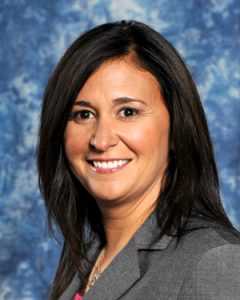
Being a highly educated city holds enormous potential for the future of Tempe. That’s because the connection between higher education and higher-wage jobs means that more residents prosper. When a community prospers, more investments are made in schools, neighborhoods and city amenities. In Tempe, we’re trending upward.
The last census recorded that 41 percent of Tempe residents attained a bachelor’s degree or higher. A remarkable 24 percentage points higher than the state’s average of 17 percent and considering the national average is 33 percent, Tempe is well-positioned to capitalize on the future economy.
To maintain our focus towards the future, we needed a plan. Since my first term as a Councilmember, I advocated for a citywide education strategy to keep us on goal.
I understand that as a city, we have no jurisdiction over schools, but I recognized that we all value the importance of education.
So it’s critical that the city be involved especially because of the interdependence of educational success and positive societal effects.
My mission was to design a plan and form an education partnership that included Arizona State University and our local school districts. With the support of Mayor and Council, we did.
ASU’s participation was essential.
Their presence in our hometown brings tremendous benefits and their role in our community’s education success has been significant. We collaborated with them, along with the Tempe Union High School District, the Tempe Elementary School District and the Kyrene School District, to make progress in aligning the city with key educational objectives.
As equitable partners, we share a common purpose to support the growth of educated and skilled residents because we know that student success is vital to a strong and healthy community.
The partnership’s roadmap has five aspirational goals for youth:
• Children live in a stable and nurturing families
• Children are mentally and physically healthy
• Children are ready to succeed in school
• Children live in safe and supportive neighborhoods
Young people successfully transition to adulthood
Our city’s Education Coordinator is leading efforts to achieve these goals and a number of projects are underway.
Read On Tempe is a program that aims to ensure that all local students are able to pass the state’s third grade reading benchmark so they can promote to the fourth grade.
This is complemented by our cooperation with volunteers from the AARP Experience Corps who donate their time by pairing up with children from kindergarten to the third grade to improve reading skills.
For older students we have College Connect, a free college and career support service at the Tempe Public Library for Tempe high school students and their families.
Initially we partnered with ASU to launch the program. Now, joined by University of Arizona, Northern Arizona University, Grand Canyon University, University of Advancing Technology, and Rio Salado and Mesa community colleges, the program has assisted hundreds of students and parents through the rigorous college admissions process.
I also want to emphasize that any post-secondary education is important. It can be a college degree, specialized industry training, or skilled-trade certification. This is why Career Technical Education offered at our local schools is a good investment.
We need skilled employees to take the future jobs in advanced manufacturing, software development and healthcare.
Through our collective commitment as Tempe residents to support education strategies and investments, we will continue to ensure positive student outcomes that will make our community stronger.
That will lead to benefits like increased property values and a higher quality of life in neighborhoods. We’re on our way to achieving this and more.
The abundance of our city’s educational and career resources for children and adults will increase our college attainment levels and validate our claim as the knowledge capital of Arizona.
Robin Arredondo-Savage is a member of the Tempe City Council.


How about a shout out to the individuals rather than the institutions who have volunteered their time to make these programs successful.